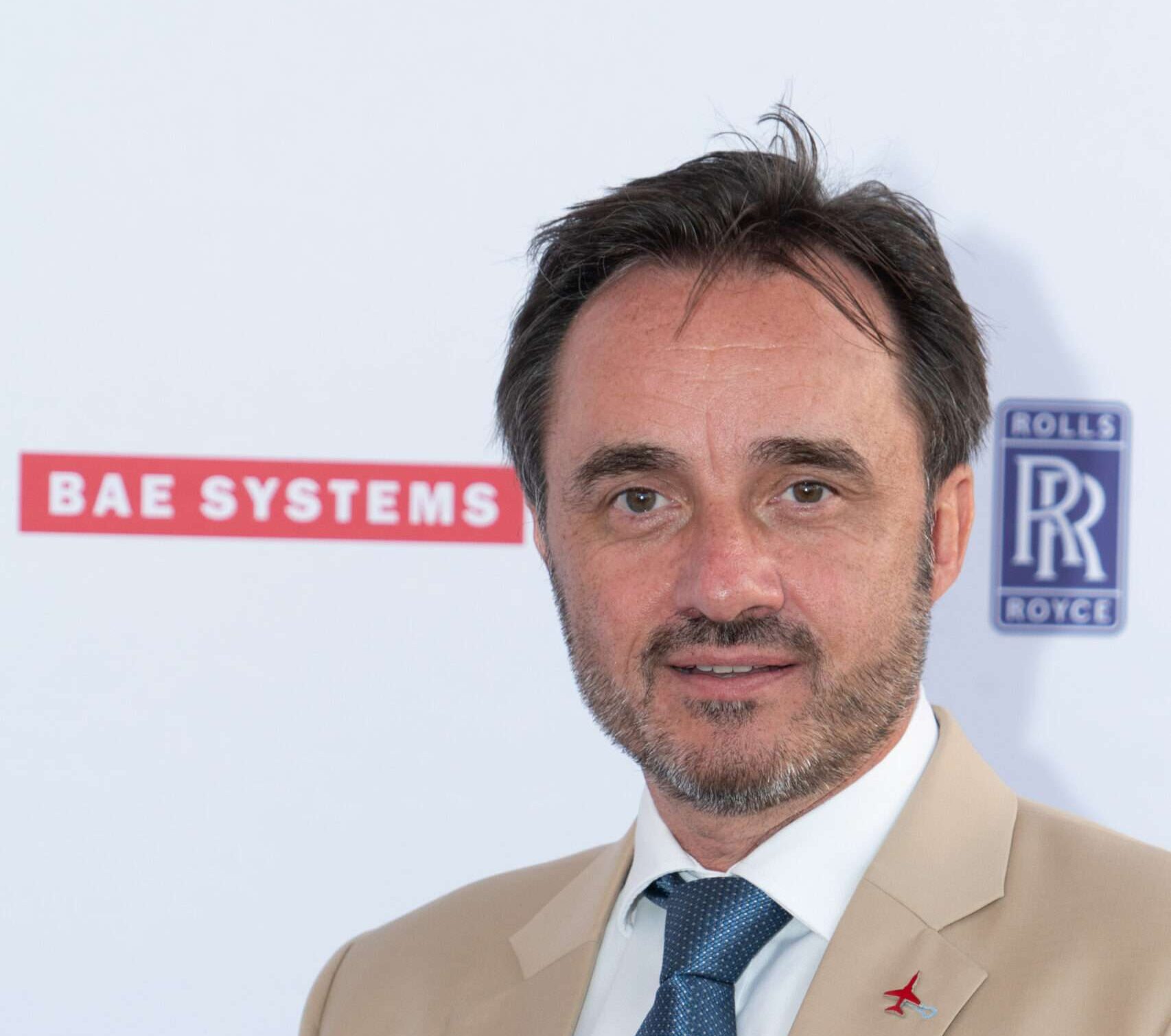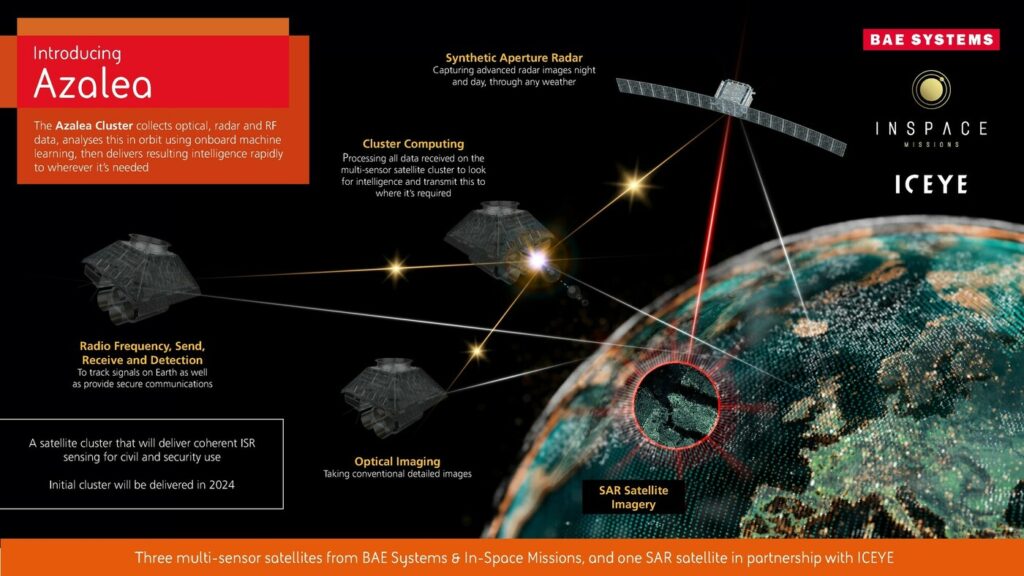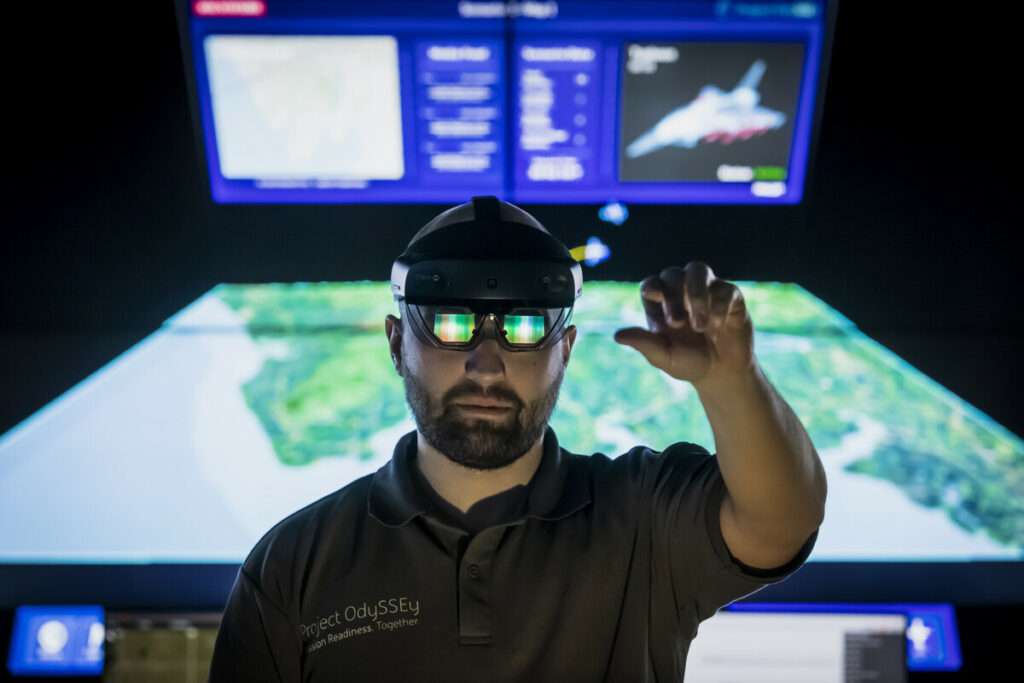

Jonathan Bird
During the 18th Dubai Airshow, we had the opportunity to connect with Jonathan Bird, the Country Director for the United Arab Emirates at BAE Systems. With a rich heritage in the development, manufacture, and support of world-leading combat and fast jet trainer aircraft, BAE Systems has an exciting presence at this year’s event. Jonathan Bird provides insights into the company’s plans and objectives, highlighting their strong commitment to the Middle East and the vital role of local partnerships in shaping the future of aerospace and skills in the region.
Jonathan’s professional journey features a significant position as the Head of Industrialization for the Middle East at BAE Systems. In this capacity, he led initiatives aimed at establishing partnerships and joint ventures focused on knowledge transfer, improving the supply chain, and introducing technological innovations.
He has been a key advocate for various educational endeavors, notably the esteemed Make-It Challenge in the UAE. His promotion of internships and apprenticeships has played a substantial role in influencing the advancement of STEM education, crucial for fostering economic diversification in the Gulf region.
The interview delves into BAE Systems’ extensive training initiatives, where Jonathan Bird sheds light on how the company, which annually trains 450 aircrew and over 6,000 aircraft technicians worldwide, is actively contributing to the development of air capabilities in the Kingdom of Saudi Arabia and Qatar. The discussion emphasizes the long-standing relationships with customers and the ongoing efforts to harness synthetic and advanced technologies for the next generation of military skills.
Project OdySSEy, a single synthetic environment (SSE) proof of concept designed for military training, takes center stage in the conversation. Jonathan Bird elaborates on the capabilities of Project OdySSEy and its relevance to the region, emphasizing its role in providing crucial battlefield experiences in a virtual world.

Shifting gears to the future of air defense, Jonathan Bird provides updates on the Tempest project, slated for delivery in 2035.
With space emerging as a major theme at this year’s Dubai Airshow, the interview explores BAE Systems’ recent move into the sector with the proposed acquisition of US company Ball Aerospace.
As we explore these key topics, Bird provides a comprehensive overview of BAE Systems’ strategic vision for the Dubai Airshow and the company’s impactful contributions to the defense and aerospace landscape in the region.
- With the 18th Dubai Airshow in progress, what are your main plans and objectives for the event this year?
- Dubai Airshow is a fantastic regional event, bringing together industry experts, military customers, astronauts and exciting new products and technology. We’re really looking forward to this year’s show! At BAE Systems, we have a proud and strong heritage in the development, manufacture, upgrade and support of world-leading combat and fast jet trainer aircraft. This is particularly prevalent in the Middle East through our advanced jet trainer Hawk and Typhoon, as well as our efforts to modernise head up displays on F-16. We recognise that local partnerships are fundamental to our success and our priority at the event is to meet with our partners, team-mates and suppliers who are collectively focused on the future of aerospace, and skills, in the region.
- We understand that BAE Systems currently trains 450 air crew and more 6,000 aircraft technicians every year across the globe, but can you provide any specific examples where your air training capabilities are currently in active service in the region and how you see this evolving?
- In the Kingdom of Saudi Arabia, BAE Systems provides the full training pipeline for the Royal Saudi Air Force from supporting the recruitment and selection of candidates, delivering elementary flying training through to advanced jet training using the BAE Systems’ Hawk advanced jet trainer and through-life training on operational frontline aircraft including Eurofighter Typhoon. We also deliver training for the Royal Saudi Naval Forces and many trainees go on to have careers in other highly-skilled roles in the aviation sector ranging from air traffic controllers to specialist technical roles.
In support of our Qatari customer, we work alongside the UK Royal Air Force to deliver live and synthetic training to air crew and support technicians, providing them with critical skills to support the Qatar Armed Forces, and gain skills and qualifications to support future careers.
Our long-standing, intimate relationship with our customers gives us a unique insight in to their needs both now and in the future and we are already working alongside them to harness synthetic and advanced technologies to deliver the next generation skills needed by military forces.
- In the Kingdom of Saudi Arabia, BAE Systems provides the full training pipeline for the Royal Saudi Air Force from supporting the recruitment and selection of candidates, delivering elementary flying training through to advanced jet training using the BAE Systems’ Hawk advanced jet trainer and through-life training on operational frontline aircraft including Eurofighter Typhoon. We also deliver training for the Royal Saudi Naval Forces and many trainees go on to have careers in other highly-skilled roles in the aviation sector ranging from air traffic controllers to specialist technical roles.

- We have heard about Project OdySSEy, and the future of synthetic military training, please can you elaborate on this and how it is relevant for the region?
- Project OdySSEy is our single synthetic environment (SSE) proof of concept which alllows military forces across all domains to regularly and securely train in a virtual world, gaining crucial battlefield experiences without the challenge and constraints of live collective training.
Having validated he capability of our SSE, integrating air and land domains with battlespace command capabilities, the next steps will see us add further domains to increase the complexity and capability of the environments.
As a leading training provider within the region, we continue to work alongside our customers to understand how this technology can support their needs.
- Project OdySSEy is our single synthetic environment (SSE) proof of concept which alllows military forces across all domains to regularly and securely train in a virtual world, gaining crucial battlefield experiences without the challenge and constraints of live collective training.
Project OdySSEy is our single synthetic environment (SSE) proof of concept which alllows military forces across all domains to regularly and securely train in a virtual world, gaining crucial battlefield experiences without the challenge and constraints of live collective training
BAE’s UAE Director
Jonathan Bird
- Is there any updates on the Tempest project scheduled for delivery in 2035? Additionally, how do you envision this project influencing the future of air defense?
- In July 2022, the UK announced its ambition to fly a Flying Technology Demonstrator within the next four years and since this announcement work has been progressing to develop the technologies needed. This has seen experts from BAE Systems, Rolls-Royce, Leonardo UK, MBDA and the UK Ministry of Defence collaborating with a range of British small and medium sized enterprises (SMEs) using a range of innovative digital techniques and transformative processes, combined with the expertise of the UK’s world-class defence industry. In a brand new facility, at BAE Systems in Warton, Lancashire, test pilots from BAE Systems, Rolls-Royce and the Royal Air Force have already flown more than 150 hours of the demonstrator aircraft in a new bespoke simulator, providing crucial evidence to support flight trials. In a first for military aircraft design, BAE Systems’ engineers have used auto coding to create safety-critical systems software in a matter of days rather than weeks. This enables rapid assessment of the flight control systems during more complex flight manoeuvres with the simulator capturing crucial data about how the jet will handle and perform, years before its first flight. Engineers have also been carrying out aerodynamic engine testing, harnessing new advanced manufacturing processes to produce an engine duct which is uniquely shaped to slow the air from supersonic to sub-sonic speeds at the engine face. The intake has fewer moving parts than a traditional fighter jet design, enhancing the aircraft’s stealthy design. The test was conducted at Rolls-Royce’s site in Filton, Bristol, in the same facility where the Concorde Olympus engine was tested in the 1960s.
- In July 2022, the UK announced its ambition to fly a Flying Technology Demonstrator within the next four years and since this announcement work has been progressing to develop the technologies needed. This has seen experts from BAE Systems, Rolls-Royce, Leonardo UK, MBDA and the UK Ministry of Defence collaborating with a range of British small and medium sized enterprises (SMEs) using a range of innovative digital techniques and transformative processes, combined with the expertise of the UK’s world-class defence industry. In a brand new facility, at BAE Systems in Warton, Lancashire, test pilots from BAE Systems, Rolls-Royce and the Royal Air Force have already flown more than 150 hours of the demonstrator aircraft in a new bespoke simulator, providing crucial evidence to support flight trials. In a first for military aircraft design, BAE Systems’ engineers have used auto coding to create safety-critical systems software in a matter of days rather than weeks. This enables rapid assessment of the flight control systems during more complex flight manoeuvres with the simulator capturing crucial data about how the jet will handle and perform, years before its first flight. Engineers have also been carrying out aerodynamic engine testing, harnessing new advanced manufacturing processes to produce an engine duct which is uniquely shaped to slow the air from supersonic to sub-sonic speeds at the engine face. The intake has fewer moving parts than a traditional fighter jet design, enhancing the aircraft’s stealthy design. The test was conducted at Rolls-Royce’s site in Filton, Bristol, in the same facility where the Concorde Olympus engine was tested in the 1960s.
- With space being a major theme of this year’s Dubai Airshow, we have seen that BAE Systems has made a major move in this sector recently, with the proposed $5.55bn acquisition of US company Ball Aerospace, who are key suppliers to NASA. Please can you describe the significance of this and what BAE Systems’ ambitions are for space related solutions in general in the region?
- It’s a particuarly exciting time for space across the region. There are many bold ambitions to advance space exploration and it was great to see UAE astronaut Sultan Al Neyadi’s completion of the extended manned space mission – another first for the Arab world. At BAE Systems, we’re looking forward to playing our part to further inspire young people and build the future skills they need. One way we’re doing this is through our space internship programme which will see UAE students gain real work experience at our UK facilities. Space isn’t new to BAE Systems – we’ve supported ground-based signal processing for more than 20 years and our recently established Digital Intelligence business is progressing Azalea, our Low Earth Orbit satellite cluster system that will deliver high-quality information and intelligence in real-time from space to military customers, due to launch in 2025. With regards to Ball Aerospace, we were excited to announce our intention to acquire the company earlier this year. Ball Aerospace has hugely relevant capabilities to our existing portfolio and we’re now focused on working through next steps, including the necessary customary regulatory approvals.






Be the first to comment